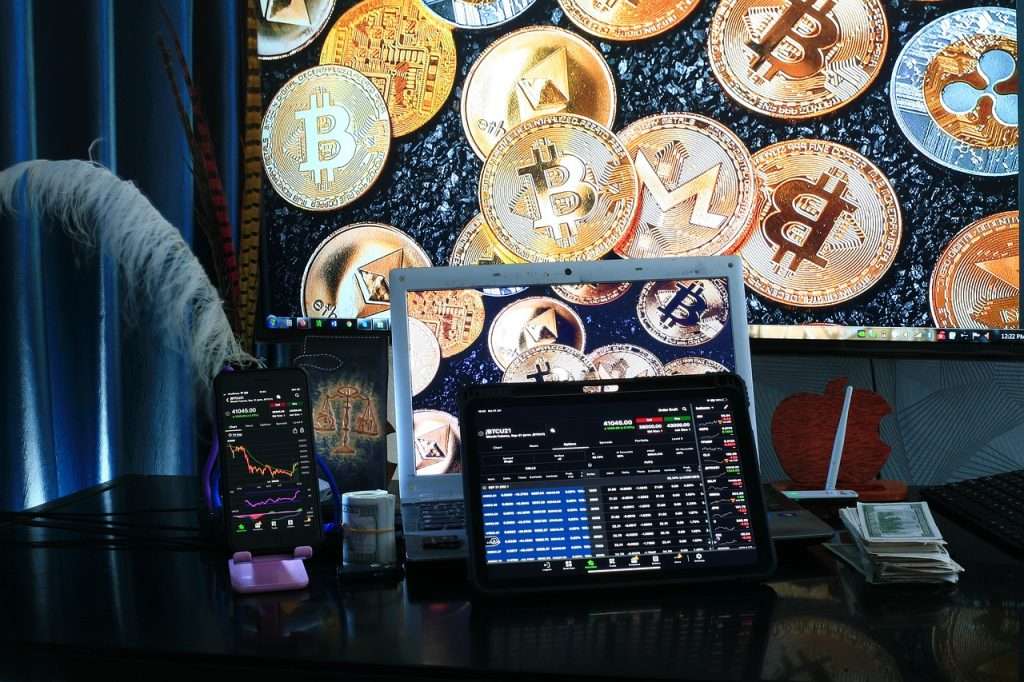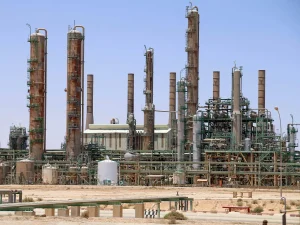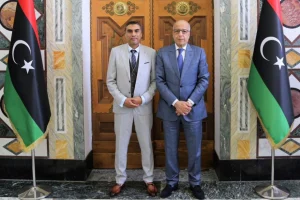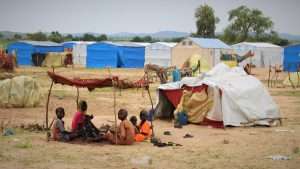Peer-to-peer crypto trading thrives in Morocco despite institutional ban

As cryptocurrencies struggle through their longest bear market since the surge in late 2020, young traders are still holding onto the virtual asset, patiently waiting for the market tides to turn. Young Moroccans are no exception.
The case of crypto’s popularity in Morocco is a peculiar one. The country, much like its Arab and African neighbors, boasts a large population of young tech-savvy individuals with decent internet penetration. Yet, unlike other Arab and African countries, Morocco often appears on international rankings among countries where crypto trading is popular, with the number of crypto holders in the country reaching 1.5 million in 2022, according to some estimates.
Cryptocurrency, a virtual currency mined, and maintained on a blockchain, has been especially appealing to young people thanks to its decentralized nature. Some young people on Reddit, a discussion forum and hub for crypto news exchange, vouch for the crypto’s promise of bringing about financial equity given its bank-free transactions and its open-access ledger system.
In Morocco, however, young people don’t seem to share the same rebellious aspirations as their Western peers, as they largely view crypto as an unconventional method of building wealth.
For one Moroccan crypto trader, a sixth-year student in the Rabat National School for Architecture, who preferred to remain anonymous, crypto in Morocco represents an alternative for young people who simply don’t have enough money to trade on major stock exchanges.
“You can hop on the market with small funds; it’s like a stock exchange, but one for the populace. You can start on the market with just 100 Moroccan dirhams ($9.7) that you saved up at the end of the month,” said the young man who lives in Sale, a commuter town on the other bank of the river from the capital Rabat. “The market offers significant opportunities, and there are well-known instances of people in Morocco who started off really poor and made a lot of money in the space.”
Another Moroccan student who is studying at a French business school said that the reason he first joined the crypto hype is the “supportive community.”
“There are a lot of Facebook groups, and Twitter accounts of other Moroccans who share their experience in trading and give advice on best practices to trade,” the 25-year-old added.
Crypto is also appealing to young people because of their affinity for discovering new technology, their willingness to take higher risks, and, most importantly, their desire to break free from the rat race and make a living without having to grind from 9 to 5. “I want to break the cycle of having to go to school and scramble to find a job within a limited set of options. I’m trying to find my own way in the world.”
Crypto Ban in Morocco
While cryptocurrencies have been around since 2009, Morocco’s state institutions only took notice of the virtual assets eight years later when they became a trendy topic for the local press as the market rallied.
On November 21, 2017, the capital market watchdog AMMC, the central bank (BAM), and the Ministry of Finance and Economy issued a joint statement declaring that the use of crypto is “unregulated” and listed a number of risks associated with the use of virtual assets.
Since then, however, the central bank’s stance on crypto has softened. In June 2022, the bank announced that they were in discussions with the International Monetary Fund (IMF), the World Bank (WB), and other international partners to draft regulations for holding and trading in crypto.
In December 2022, the central bank governor, Abdellatif Jouahiri, told reporters that the draft law regulating the crypto market in Morocco was “ready” and would be presented to the various stakeholders within the market in the following days.
Moroccan youth show little regard for the legal status of crypto. “Trading is illegal, but who cares, weed is also illegal. I don’t see people refraining from either,” the young man said sarcastically. “When you trade, you trade in a private space, sitting alone and opening an account. As long as Binance and Metamask are not banned, then you can still trade.”
Binance is a crypto-focused stock exchange, while Metamask is a virtual wallet that allows users to hold and manage crypto balances.
While trading and holding are straightforward enough, the ban makes it difficult for Moroccan crypto holders to exchange crypto for Moroccan dirhams. To get around the ban, young people exchange crypto for USD on Binance or meet face-to-face with other traders and transfer crypto balances in exchange for cash.
READ: Learning from FTX’s Cryptocurrency Fall
Want to chase the pulse of North Africa?
Subscribe to receive our FREE weekly PDF magazine












